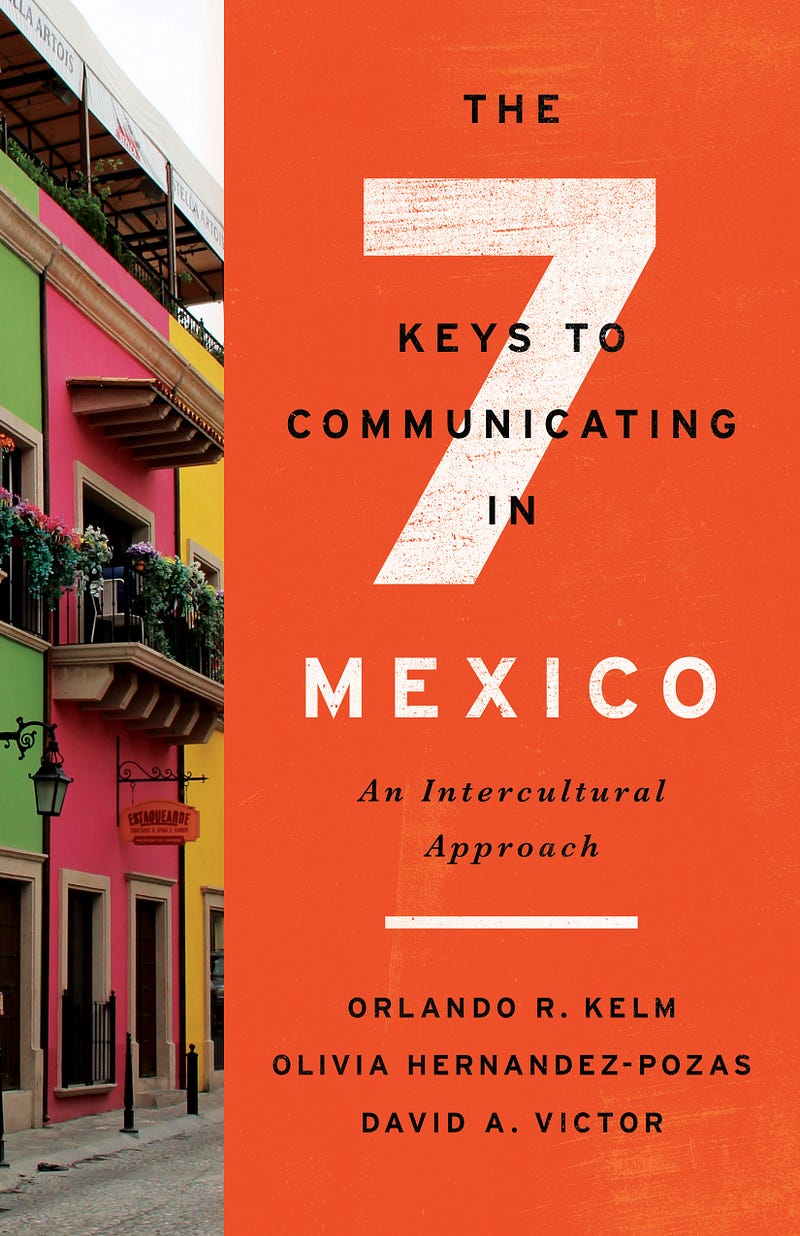Speaking the Language of Mexican Business
Cultural tips for crossing business borders

Mexico is America’s leading commercial partner, accounting for 15% of total U.S. trade. Like many partners, though, the two can be plagued by misunderstandings. Many a cross-border deal has suffered when an American committed a cultural gaffe.
Orlando Kelm, an associate professor of marketing at Texas McCombs, has recommendations for avoiding such communication breakdowns. In a new book, “The Seven Keys to Communicating in Mexico: An Intercultural Approach,” with Olivia Hernández-Pozas of Tecnológico de Monterrey and David Victor of Eastern Michigan University, Kelm breaks communication challenges into seven areas: language, environment and technology, social organization, contexting, authority conception, nonverbal cues, and the concept of time.
Kelm straddles two academic cultures himself. He spends half of his time at The University of Texas at Austin’s College of Liberal Arts, where he’s an associate professor of Hispanic linguistics.
Why is bicultural communication valuable?
Our business students get really good at finance, operations, and marketing. Where they have problems is with relationship stuff. A lot of what goes on is talking past one another. Figuring out where the other person is coming from seems to be a lost skill.
Is it more than just speaking another language?
Language is just a tiny piece of learning to be bicultural. It’s about becoming aware of cultural differences.
In Mexico, what sort of cultural clash can lead to a business problem?
Our tendency is to be informal and casual. Mexicans don’t love informality. I once saw a North American guy speaking. He put his foot with his shoe on top of the table and he talked to executives in “buddy” fashion. I saw their faces look appalled. You could just feel the lack of respect.
How does respect play out in a Mexican workplace?
Face-saving and preserving dignity are very important. For example, if you’re in upper management, there’s a perception you should speak English. If someone’s not good at English, they may spend their life hiding that fact. Since I don’t want to embarrass that person, I might speak a little more slowly, use written aids, and repeat things more often.
And family is very important.
The business model is the family. It’s a society with a large percentage of family-owned businesses. If somebody says to you, “I can get you paper for 10% cheaper,” you may say, “So what? My supplier is my nephew.” The concept of bottom-line profit sometimes takes a back seat to being faithful to your family.
Another type of personal relationship in Mexico is the patrón, a boss or a mentor who dispenses favors in exchange for loyalty. Why might someone need a patrón?
When some people hear that word, they think it means abuse. It doesn’t. The idea is that those with power and authority also have a responsibility to take care of people. If you live in a society with little social mobility, you need to know somebody with more power who takes care of you. Your “patron” is not just your boss, but somebody who helps you out in a lot of other ways.
How can understanding that system help an outsider?
If you have not identified the person who’s really in charge, and you’re working with a person who’s not in a position to make decisions, you’re not going to get anything done. You’re going to misinterpret the person as not doing anything, when really, you’re asking the wrong person.
How else do Americans misread Mexican business customs?
There’s a different sense of time. Here, the clock and the schedule dominate our activities. In Mexico, if we’re enjoying this conversation, and it’s supposed to end at 2:30 p.m., I may have a couple of more things I want to ask you. If I have another person to see, I’m still going to see them. They’ll just have to wait a little longer.
Another window into the Mexican mind, you advise, is through folk sayings or dichos.
Understanding proverbs gives you more information about the values people have. There’s an expression about putting too much cream on your taco. When someone says it, they’re telling you, “You’re exaggerating here. You should understand that it’s important to be modest and not brag.”
Can the keys for Mexico help with communicating in other countries, as well?
Absolutely. Cross-cultural communication is a transferable skill. If somebody becomes adept at the seven keys, and they’re suddenly sent to Germany, they should be able to apply that same skill of observation with the Germans. It is the core of how to successfully deal with people abroad.
“The Seven Keys to Communicating in Mexico” was published in February 2020 by Georgetown University Press.
Story by Steve Brooks
About this Post
Share:


